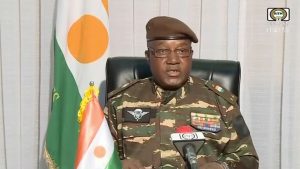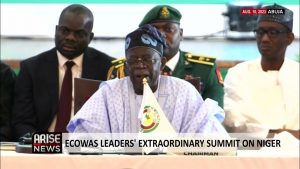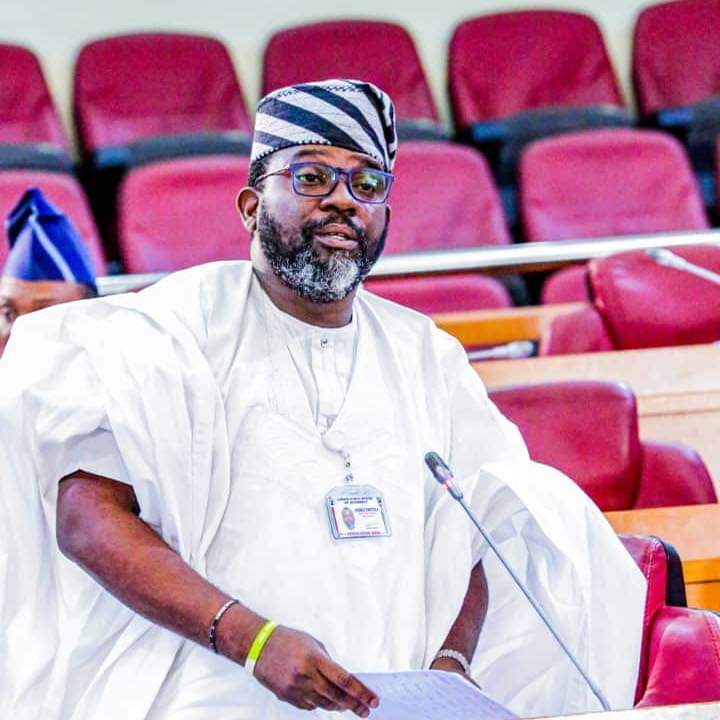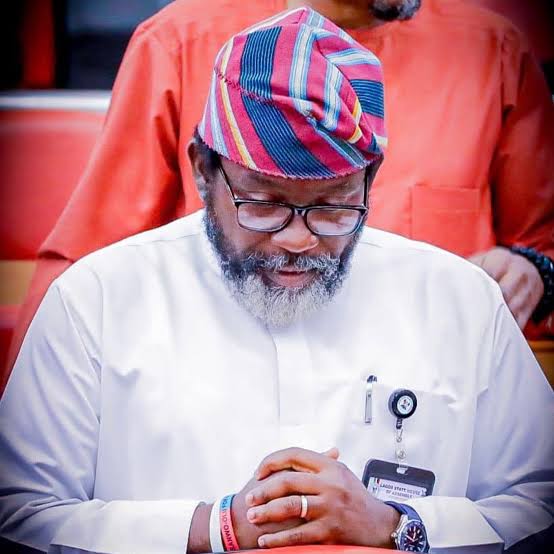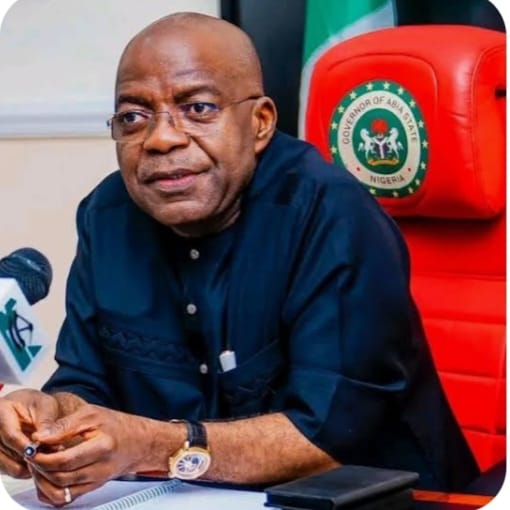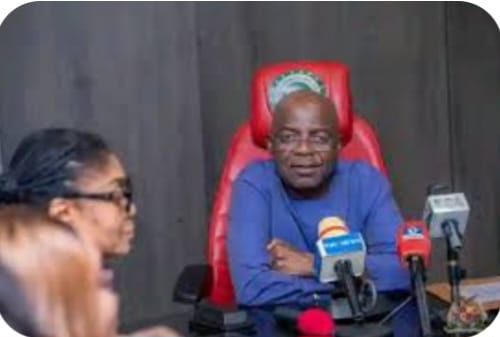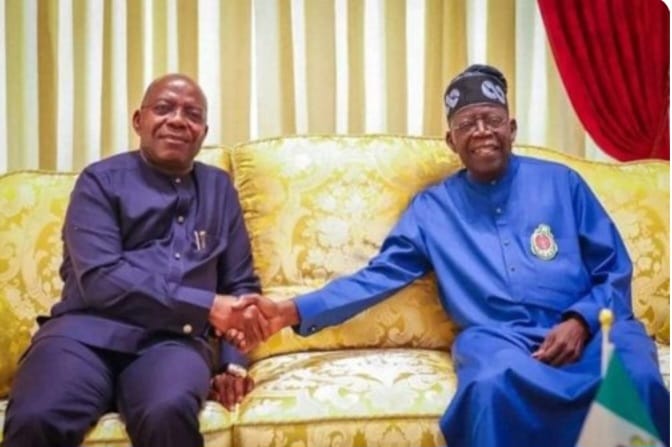Politics
DOES KILLING NIGERIEN BABIES BRING GLORY TO OUR NAME? BY Femi Fani-kayode
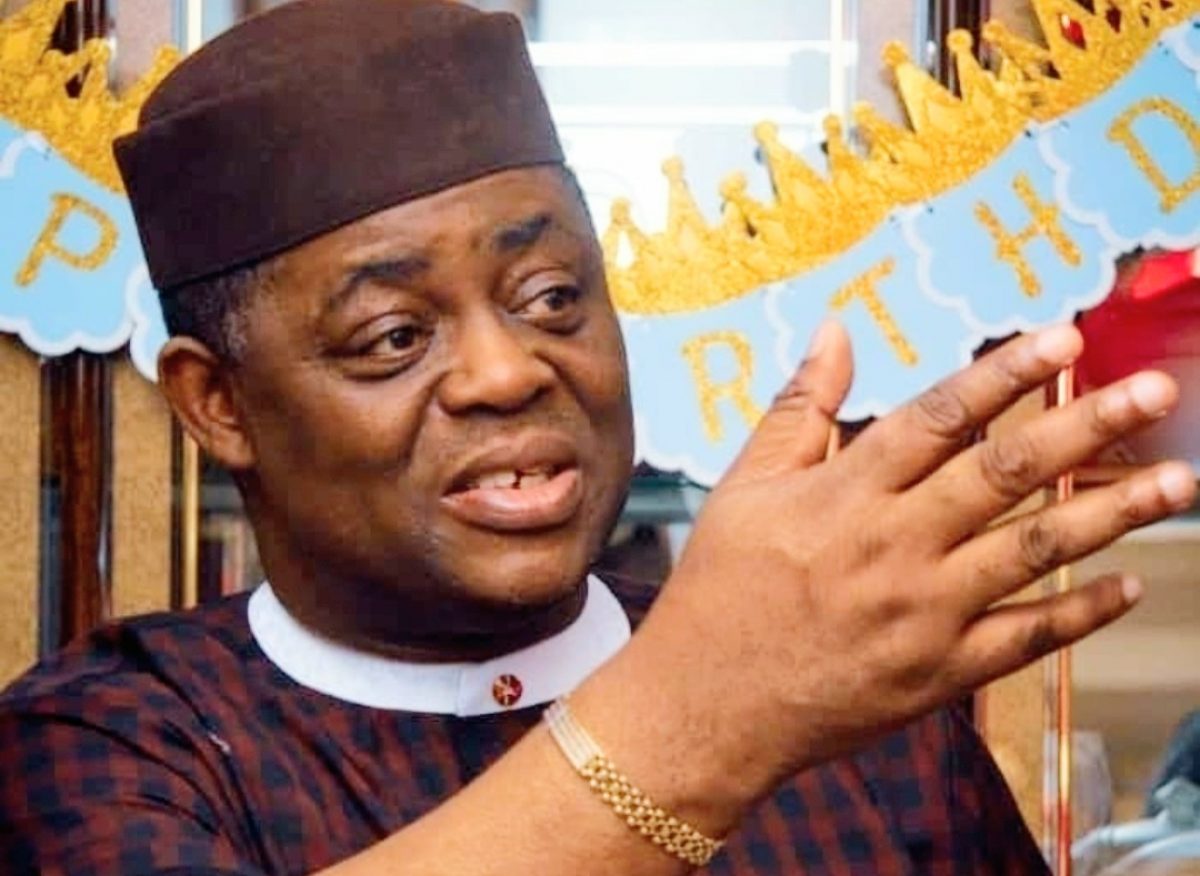
DOES KILLING NIGERIEN BABIES BRING GLORY TO OUR NAME? BY Femi Fani-kayode
A dear and respected friend of mine who was once our Ambassador to a European country, who has relatives and strong links in and with Niger Republic and who is well versed in security and intelligence matters told me that up to 40 babies are dying each day in Niger as a consequence of our cutting off electricity supplies to them.
According to him these babies die in hospitals and incubators across the country as a consequence of the fact that there is no electricty supply and there is no fuel to power their generators.
This was confirmed by one Dr. Abdoul Djibou, a Nigerien medical practitioner, in an interview with Newsonlineng.com.
They wrote,
“According to a source in Niger Republic, Dr. Abdoul Djibou, there has been reports from Dosso Regional Hospital and Cominak Hospital about the recent spike in infant mortality. According to him, over 40 babies die daily in Niger since the Nigerian government cutoff Electricity supply to Niger and also closed its borders. It has affected hospital badly as they’re unable to power their incubators and other life supporting equipment to assist these babies. He also mentioned that the closed borders has made it nearly impossible for hospitals to access petroleum products especially Diesel and Petrol to power their plants and generators.
This is aside the untold hardships that the general populace are grasping with in Niger. He has made a passionate appeal for the Nigerian government to reconsider its decision even though backed by the ECOWAS. He stressed the need for the Nigerian government to remember that the people of Niger are more like an extension of northern Nigeria. In his opinion, he believed strongly that the ongoing negotiations with the Junta leaders will yield results and stressed the need for the negotiations to be intensified instead of beating the drums of war and upholding the current stiff sanctions that has now crippled the economy and the health sector especially” (Nigeronlineeng.com: Coup Sanctions On Niger Republic Causes Untold Hardship/Starvation/Death).
I cannot possibly confirm the veracity or accuracy of these assertions and reports but if they are anywhere near the truth it is enough to prick anyone’s conscience.
Furthermore I doubt that our President, being a humane, rational and reasonable leader, would have allowed this to happen if he was aware of the harsh and cruel consequences of the “cut off all electricity to Niger” policy and that is precisely why it is important to bring it to his attention in this article.
Quite apart from that, according to UNICEF, “more than two million children have been affected by the crisis and are in desperate need of humanitarian assistance” and millions of dollars worth of vaccines for polio and other dangerous diseses cannot be safely preserved or stored due to power outages.
On its own part Africanews.com reports that “The U.N. is spending over 20 times more money than usual on fuel for generators to keep millions of vaccines in Niger from spoiling due to incessant power cuts. The outages are the result of severe economic and travel sanctions imposed by regional countries after mutinous soldiers toppled the country’s president last month Country representative for the United Nations Children´s Fund in Niger, Stefano Savi, said it has spent $200,000 powering generators to keep vaccines, including for polio and rotavirus, across the country cold during the first three weeks of August. That’s up from approximately $10,000 a month previously and might soon run out of money, he said. Niger relies on neighboring Nigeria for up to 90% of its power, but after soldiers ousted democratically elected President Mohamed Bazoum in July, Nigeria cut off part of its electricity supply as part of sanctions imposed by the West African regional bloc, ECOWAS. The sanctions are taking a toll on the population with the price of goods rising, residents unable to easily access cash, and people living in the dark. Now there are mounting concerns it will gravely impact the health system, particularly the ability to keep some 28 million vaccine doses in the country cold. Although there were power cuts before the sanctions, they usually lasted a few hours, but now the cuts are much longer – sometimes up to 18 hours a day, said Savi. UNICEF only has enough money until the end of August and is appealing to donors for emergency funds, he said.”
How can we as a nation inflict such damage and unleash such wickedness and misfortune on innocent people who live just across the border from us and who are essentially our people too?
This is unacceptable and especially so given the fact that we are not at war with Niger and the overwhelming majority of our people regard them as our brothers.
This begs the question: is this the way to treat our African neighbours and brothers even whilst we lay claim to seeking and preferring a diplomatic solution to the crisis? Methinks not!
If our claim and intention is to better the life of these people by insisting that they must have a democratically-elected Government and by resisting a military one is our purpose truly served by killing the children of the very same people that we claim we want to help?
Again does this murky and murderous course serve our national and security interests and does it enhance better relations with other African countries?
Does imposing sanctions and policies like cutting off electrical supplies and that, albeit inadvertently, lead directly to the death of innocent babies and defenceless children help our cause, bring glory to our name or give credence or credibility to our so-called fight and quest for democracy?
I doubt it very much.
I call on our leader and President, Asiwaju Bola Ahmed Tinubu, who is currently the Chairman of ECOWAS, to review and reverse this policy and allow us to continue to supply electricity to Niger.
This is all the more so given the fact that cutting off electricity to that nation is bringing death, suffering and hardship more to the women and children than to their Government officials and members of the newly-installed military junta.
Surely Niger’s suspension from both ECOWAS and the African Union coupled with the imposition of a series of strong economic sanctions including the closing of borders and the imposition of a no fly zone, are enough punishment.
We must never forget that there is a distinction between the Government of a nation and it’s people.
Punishing the people for the sins of their leaders and Government is not only unjust and unkind but also counter-productive.
Outside of that It is interesting to note that our French allies and partners, who are amongst those western powers that want us to bring the Nigeriens to their knees and even attack them, recently described Russia’s targetting of power grids in Ukraine and denying the Ukrainians gas to power their electricity supply as a “war crime” and “crime against humanity” yet they are encouraging Nigeria to do the same to Niger.
When will the application of these double standards by our French friends stop?
Just in case anyone is in any doubt about the high handedness and excesses of the French in Africa permit me to conclude with the strong words and powerful admonition served to French President Emmanuel Macron by Giorgia Meloni, the courageous, passionate and stunningly beautiful Italian Prime Minister.
In a blistering and thunderous speech she exclaimed the following words with orgasmic passion,
“Macron, your France undermined and destroyed the good relationship we had with Gaddafi, destroyed Libya, unleashed a wave of refugees and immigrants into Europe and appropriated the resources of African countries and plundered their wealth. Children and the underaged work in feudal and inhuman conditions in Niger just for you to take a big percentage of their uranium that powers your electricity and nuclear reactors. Niger has no light and are dirt poor all because of your policies ”
What a lady! She has said it all!
Now just in case we doubt her let us consider the words of a towering figure like the former French President Jaques Chirac who said the following at the 21st France/Africa Summit in Yaounde, Cameroons in 2001 where 30 Heads of States were gathered.
He said,
“While speaking of Africa, we must check our memory. We started draining the continent four and a half centuries ago with the slave trade. Next, we discovered their raw materials and seized them. Having deprived Africans of their wealth, we sent in our elites who destroyed their culture. Now, we are depriving them of their brains thanks to scholarships which are definitely another form of exploitation because, at the end, the most intelligent students do not go back to their countries. In the end, noticing that Africa is not in a good state and as bonuses for the wealth we made on its back, we are giving lectures” (Canard Enchainé, January 24, 2001).
If there were ever a public admission and confession of neo-colonial and imperialist malfeasance and malevolence by a reverred and highly respected French leader and collossal figure, this is it.
He was honest, candid and forthright about his nation’s egregious and pernicious atrocities and outrageous policies in Africa and we commend him for that.
Yet this begs the question: are these the French on whose behalf ECOWAS is considering fighting a war and invading a brother African nation?
The west may have many African leaders in their pockets and eating out of their hands but the hearts, minds and souls of the overwhelming majority of the African people are with Vladimer Putin and the Russian Federation who are now perceived, rightly or wrongly, as the champions of the oppressed and the architects of a new and just world order.
There is a wind of change blowing in Africa and indeed the world today and every vestige of neo-colonialism, imperialism, pseudo-fascism, economic bondage and fiscal subjugation shall be blown away with and by it.
We have seen this happen with the meteoric and laudable rise in power, glory and influence of the formidable BRICS block of nation’s which include China, Russia, India, Brazil and South Africa and the admission of Saudi Arabia, United Arab Emirates, Egypt, Argentina, Iran and Ethiopia into that elite club of rising economic powers and giants just a few days ago.
They seek to set themselves free and shatter the shackles of economic dominance and fiscal tyranny of the United States of America, the United Kingdom, the European Union and all the other western powers and their allies.
Again we have seen this happen in Mali, Guniea, Niger, Burkina Faso, Chad and Sudan where the quest for freedom from the bondage of former colonial masters like the French and corrupt puppet African leaders and Governments led to military coups.
Regardless of the legitimate concerns of ECOWAS I expect the same to happen in Togo, Ivory Coast, Cameroons and possibly one or two other Franco-phone countries in the not too distant future simply because each is bedevilled with sit tight, vicious, undemocratic, unelected rulers and tyrants, because the resentment against the French in those countries is palpable and overwhelming and because the desire for Russian support and friendship is astounding.
Nations like Nigeria, Ghana, Benin, Senegal and Liberia may thankfully not be in danger of military intervention because they have a measure of legitimacy and because they came to power through an ostensibly credible democratic process but their Governments and leaders MUST be very wary of the level of suspicion, hatred, disdain and contempt that the ordinary people have for the Western neo-colonialists and imperialists that appear to bring so much power and influence to bear over their nations’ affairs and for those that are seen as weak, corrupt puppet-leaders who are prepared to put western interests before that of their own country.
These leaders and Government’s cannot and must not make the mistake of being seen or regarded as the Chief Poodle, Chief Enforcer, Chief Slave, Chief Slave-Driver or the grovelling and snivelling “yes bwana”, “yes massa” Chief House n*gger of the western powers in the West African sub region.
ECOWAS MUST be perceived as a body that brings Africans together and settles their differences in a diplomatic and civilised manner and not a body that can be used by the French, Americans, British, EU or anyone else to exploit us, to further and protect western interests and to fight proxy wars on their behalf.
Frankly the only ones that I can vouch for in this respect are Nigeria’s President Bola Ahmed Tinubu and Ghana’s President Nana Akufo-Addo who I do not believe would ever consciously and willingly sell their people down the river.
Whatever the case we must not allow any country in the West African sub-region to be turned into a Zaire under Mobutu Sese Seko or to a Central African Republic under Jeane Bedie Bokassa.
That is the French formula and it must never take root here.
May God guide our leaders!
FFK
Politics
Oyo 2027: Ajadi Says PDP Will Retain Power
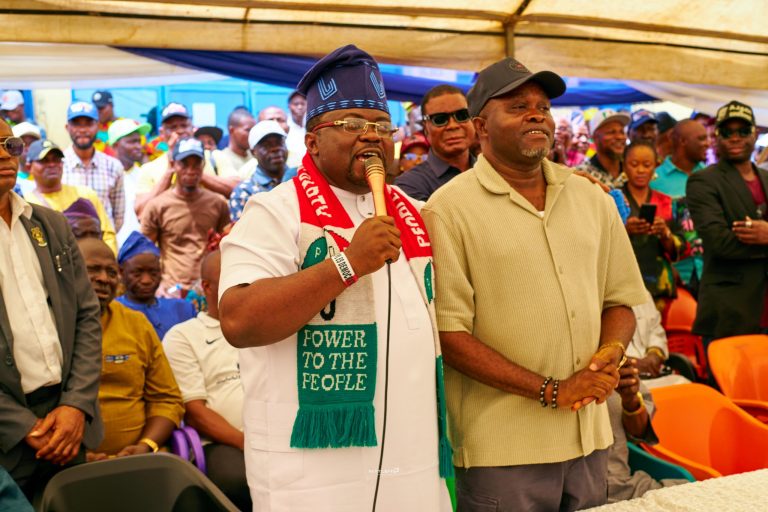
Oyo 2027: Ajadi Says PDP Will Retain Power
…..Tasks PMS To Remain United, Peaceful
A leading People’s Democratic Party (PDP) governorship aspirant in Oyo State, Ambassador Olufemi Ajadi Oguntoyinbo, has urged the people of Oyo State to remain steadfast, saying they will continue to enjoy good governance because the PDP will produce the next governor in the 2027 general elections.
Ajadi, who made this known while addressing transport unions under the Park Management System (PMS) at their headquarters, New Garage, Ibadan, on Tuesday, urged the park managers to remain united and maintain the love and peace currently prevalent among them.
According to him, “My advice to the Park Managers and the commercial drivers in Oyo State is that they should continue the love and peaceful attitudes. They should remain united. They should not ‘scattelegs’.
“Don’t let anybody deceive you, remain steadfast. Let me assure you that our party, the PDP, will produce the next governor come 2027,” Ajadi said.
He said he came to the PMS headquarters to meet with transporters and park managers to inform them of his aspiration to serve the people of Oyo State as governor come 2027.
“Today I joined my people, the park managers in Oyo State, to familiarize myself with them and inform them of my intention to serve the people of Oyo State as the next governor by the Grace of God.”
On the plans for the transporters, Ajadi said he first wants to change the look of the City Cabs, which will be done in collaboration with the Park Management System.
He also plans to increase the number of Mass Transit buses and make them available in all locations of the State.
He said the Mass Transit buses will operate in partnership with the Park Managers.
Ajadi, who commended Governor Makinde on the newly established bus terminals in the State, said his government will ensure adequate usage of the facilities.age of the facilities.
Politics
Why Ifako-Ijaiye’s Voice Is Louder At The Lagos Assembly: The Jah Factor
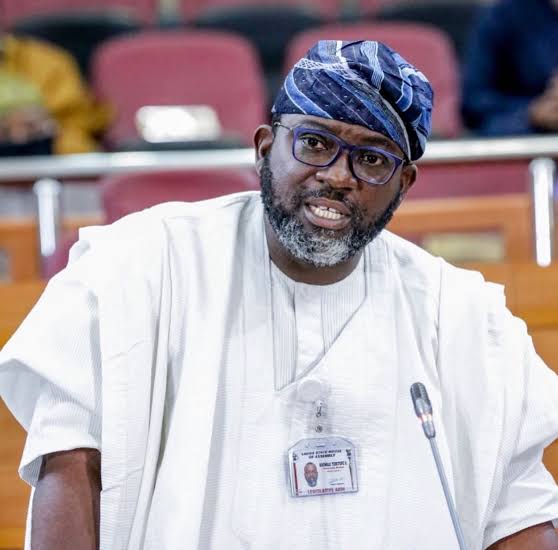
Why Ifako-Ijaiye’s Voice Is Louder At The Lagos Assembly: The Jah Factor
By Ibukun Simon
In legislative politics, not all representatives are created equal. Some merely occupy seats; others shape conversations, influence outcomes, and leave visible footprints in the lives of their people. Since 2019, Ifako-Ijaiye Constituency I has belonged firmly to the latter category, thanks to the emergence of Hon. Adewale Temitope Adedeji, fondly known as JAH, as its representative in the Lagos State House of Assembly.
As a journalist who has covered proceedings of the Lagos Assembly consistently since 2015, I have witnessed first-hand how representation can either fade into the normal routine or rise into relevance. The entry of Hon. Adedeji into the Assembly marked a clear turning point—not only for Ifako-Ijaiye, but for the quality of debate, advocacy, and people-focused legislation within the House.
On the floor of the Assembly, Hon. Adedeji stands out as one of the lawmakers journalists naturally gravitate towards. His interventions during plenary sessions are deliberate, articulate, and deeply rooted in public interest and knowledge. In the 40-member House, he is widely regarded as one of the top five lawmakers whose contributions command attention, not because of theatrics, but due to his clarity of thought, persuasive delivery, and uncommon mastery of issues. When JAH speaks, the chamber listens—and the press takes notes.
This strength of presence is crucial in a legislative environment where influence matters. In parliamentary practice, experience translates to authority. The Lagos State House of Assembly, like many legislatures, places significant weight on ranking members—lawmakers whose sustained service enhances their ability to push motions, influence committee outcomes, and attract development to their constituencies. Returning Hon. Adedeji to the House in 2027 would therefore mean strengthening Ifako-Ijaiye’s bargaining power and ensuring its concerns are not just heard, but prioritized.
Beyond the chambers, the impact of Hon. Adedeji’s representation is visible across the constituency. In terms of infrastructural development, several road construction and rehabilitation projects have been attracted to Ifako-Ijaiye under his watch, improving accessibility, boosting local businesses, and easing daily movement for residents. These are practical dividends of democracy that speak louder than campaign slogans.
Equally significant is his focus on human development and social inclusion. Since assuming office in 2019, Hon. Adedeji has facilitated job opportunities, empowered the less privileged, and consistently supported students through the distribution of JAMB and GCE forms, helping to remove financial barriers to education. These interventions reflect the impact of a representative who understands that development must touch both infrastructure and people.
What further distinguishes Hon. Adedeji is his constant engagement with constituents. Through consultations, town-hall interactions, and accessibility, he has maintained a relationship that goes beyond election cycles. This closeness has fostered trust and ensured that governance remains responsive to grassroots realities.
As Lagos continues to grow and legislative responsibilities become more demanding, constituencies like Ifako-Ijaiye cannot afford experimental representation. They require lawmakers who understand the system, command respect within it, and can translate legislative influence into real benefits for the people.
From the Assembly floor to the streets of Ifako-Ijaiye, the record since 2019 is clear: effective representation works—and Hon. Adewale Temitope Adedeji has delivered it.
Ibukun writes from Ifako-Ijaiye.
Politics
Lack of Understanding or Legitimate Concern? Otti’s Defence of Tinubu’s Tax Reform Sparks National Debate
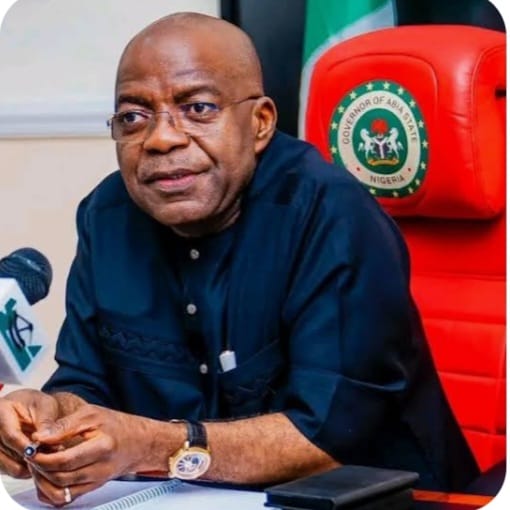
Lack of Understanding or Legitimate Concern? Otti’s Defence of Tinubu’s Tax Reform Sparks National Debate
By George Omagbemi Sylvester | SaharaWeeklyNG
“Abia Governor Alex Otti argues critics misunderstand the overhaul of Nigeria’s tax laws, but the controversy reveals deeper anxieties about governance, transparency and economic strain.”
When Abia State Governor Alex Otti publicly defended President Bola Ahmed Tinubu’s newly enacted tax reform laws on February 13, 2026, he did more than just push back at critics, he threw the spotlight back on a fulcrum issue dividing Nigeria’s political and economic classes. Otti’s assertion that Nigerians attacking the tax policy “lack understanding” crystallises a broader fracture in public discourse over fiscal policy, governance and the future of the Nigerian economy.
The comments from Governor Otti came amid an intensifying national conversation over sweeping tax reforms signed into law in June 2025, designed to modernise Nigeria’s tax architecture and expand revenue mobilisation. These reforms (long in the making and championed by a Presidential Fiscal Policy and Tax Reforms Committee chaired by Prof. Taiwo Oyedele) mark the most far‑reaching overhaul of federal tax laws in decades. They include restructuring the Federal Inland Revenue Service into the National Revenue Service (NRS), establishing a Tax Appeal Tribunal and Ombudsman Office, and unifying revenue collection frameworks to improve transparency and efficiency.
Governor Otti’s praise for the new legislation resonated with elements of his own fiscal thinking. Drawing on economic positions he articulated nearly a decade ago, he argued that key principles now entrenched in the law reflect sound fiscal reasoning and long‑standing proposals to strengthen Nigeria’s economic foundations. “Almost 10 years ago, I wrote about the fiscal side of things,” Otti said. “When I read the new tax reform law, I saw many of those arguments reflected in it. I thank Prof. Oyedele. When people attack him, they don’t understand.”
Yet, while Otti’s intervention was meant to de‑escalate public criticism, it instead exposed how complex and emotionally charged the issue of taxation has become in Nigeria. Critics, both inside and outside government, argue that the reforms have not been adequately explained to citizens and that many fear the measures will aggravate hardship amid already high costs of living. One prominent voice of dissent, fiscal policy analyst Aborisade, warned that without transparency and clear communication on how tax revenues will be collected and returned to the people, “these reforms risk becoming deeply unpopular.” Critics also highlight that any tax increase implemented without demonstrable improvements in public services could fuel resentment and mistrust in governance.
That mistrust is not abstract. For years, Nigeria has struggled with weak tax compliance, low revenue‑to‑GDP ratios compared with other emerging economies, and public scepticism over how government revenues are utilised. Many Nigerians remember episodes where policy changes were not accompanied by visible improvements in infrastructure, healthcare or power delivery, reinforcing the belief among skeptics that new taxes equate to greater burden with little reward.
For supporters like Otti and others in government policy circles, the reforms represent a long‑overdue attempt to widen the tax net and reduce Nigeria’s chronic dependence on volatile oil revenues. Advocates argue that a modernised tax system can enhance domestic revenue mobilisation, reduce fiscal deficits, and create a more resilient economy. They point out that reforms provide exemptions and reliefs for low‑income earners and small businesses and are aimed at building a fairer, more transparent system for all stakeholders.
Still, bridging the gap between these competing narratives is challenging. Opposition voices contend that even well‑designed tax policy may fail if the state lacks the capacity to implement it equitably or if the public’s confidence in leadership remains weak. “Without accountability and clear benefits for their contributions, any tax reform risks becoming deeply unpopular,” Aborisade emphasised, warning that heavy taxation without trust can fracture the social contract.
The debate over Tinubu’s tax reform illustrates a deeper truth about contemporary Nigeria: that economic policy no longer exists in a vacuum but is deeply intertwined with public sentiment, political legitimacy, and social cohesion. As one respected economist put it, “Taxation is not just a fiscal tool, it is a trust‑building exercise between the state and its citizens.” When that trust is fragile, even technically sound reforms can be seen as punitive rather than constructive.
Analysts suggest that meaningful public engagement (including sustained information campaigns, transparent revenue utilisation reporting and constructive dialogue with civil society) is essential to soothe anxieties and build confidence in the new system. Without this, what began as an effort to stabilise public finances could widen political and social divides.
In defending the tax reforms, Governor Otti has framed the challenge as one of comprehension rather than critique. But the controversy unfolding across Nigeria is not simply about misunderstanding; it underscores a profound gap between policy design and public perception. For a reform of this magnitude to succeed, Nigerians must be assured not only of its economic merits, but also of its fairness, transparency and tangible impact on everyday lives.
As the implementation phase continues through 2026 and beyond, the Tinubu administration, state governments and economic stakeholders face the critical task of translating legislative change into broader public trust – a task as difficult as any technical reform the tax laws themselves seek to achieve.
-

 celebrity radar - gossips6 months ago
celebrity radar - gossips6 months agoWhy Babangida’s Hilltop Home Became Nigeria’s Political “Mecca”
-

 society6 months ago
society6 months agoPower is a Loan, Not a Possession: The Sacred Duty of Planting People
-

 news6 months ago
news6 months agoTHE APPOINTMENT OF WASIU AYINDE BY THE FEDERAL GOVERNMENT AS AN AMBASSADOR SOUNDS EMBARRASSING
-

 Business6 months ago
Business6 months agoBatsumi Travel CEO Lisa Sebogodi Wins Prestigious Africa Travel 100 Women Award

